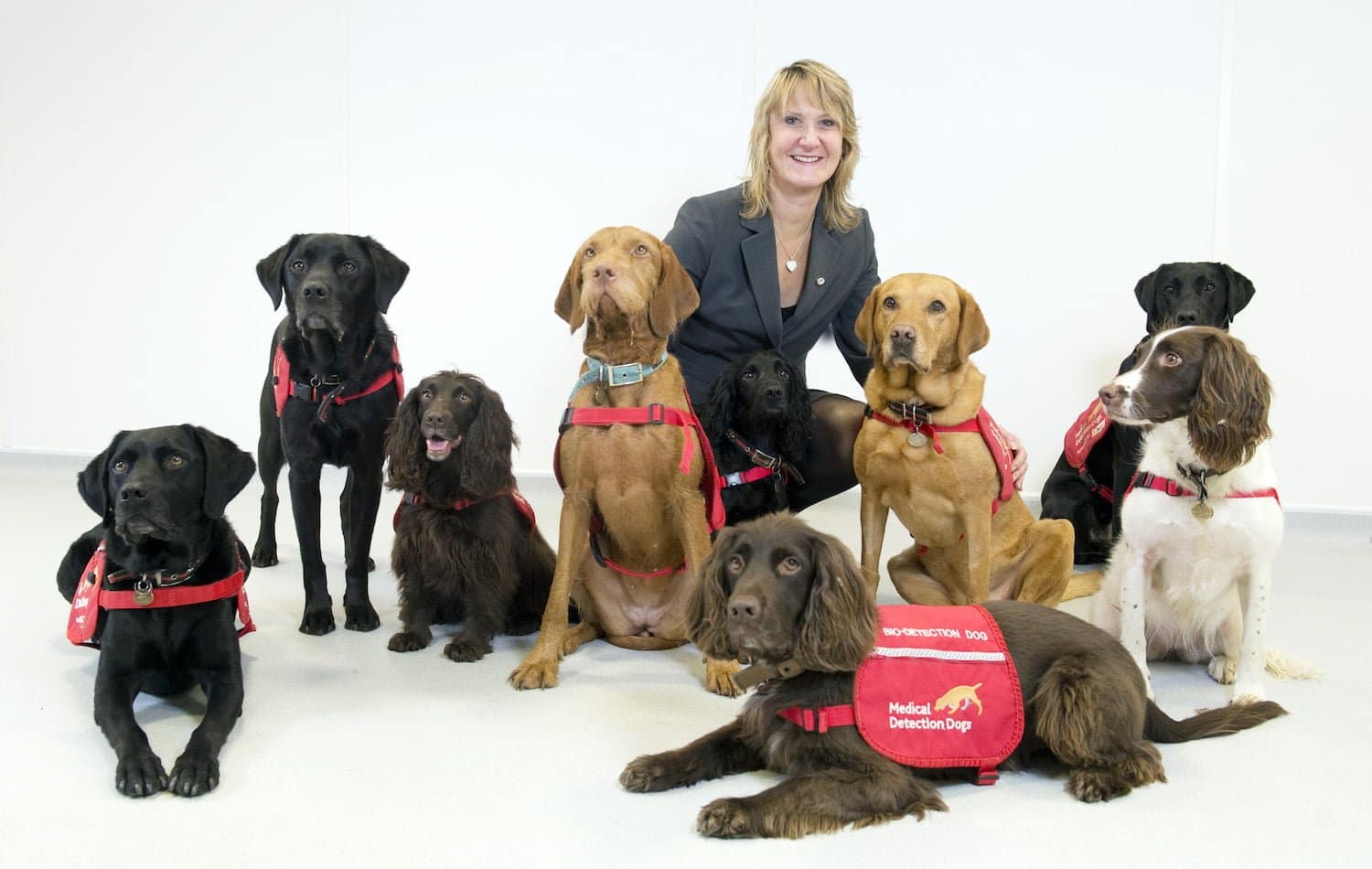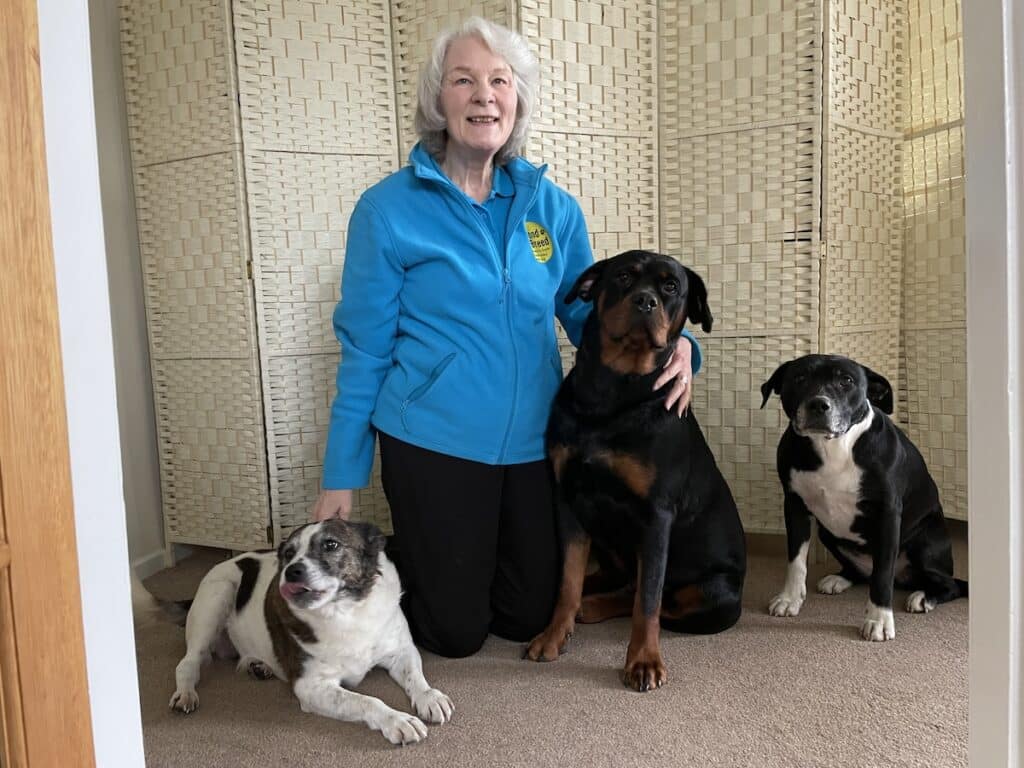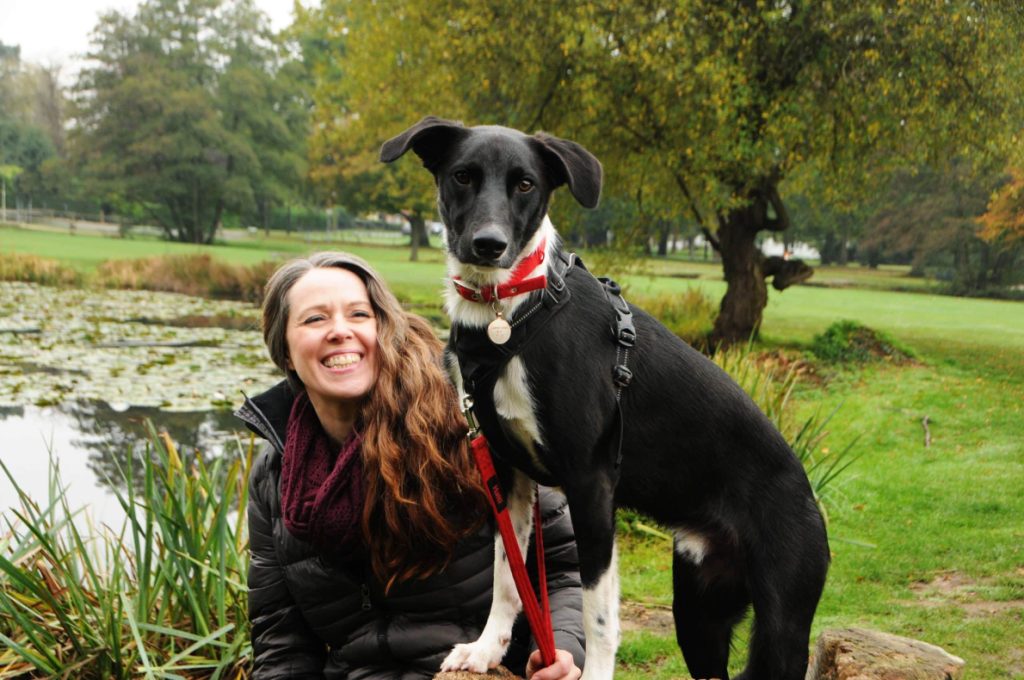It’s likely you will be aware of the work Medical Detection Dogs do helping to fight cancer and other life threatening diseases.
This week is Parkinson’s Awareness Week and Dr Claire Guest and her remarkable canine team are also working to detect the disease earlier.
It’s a cause very close to Claire’s heart as her father John, 80, a retired solicitor, discovered he had the disease three years ago and it inspired her to see whether her dogs could help.
Working with a team from Manchester University, she put Peanut, Bumper, Zen and Rumba to the test and found they could diagnose it in 400 samples.
Early detection can lead to better treatment and improve quality of life and her charity was awarded £11,000 last year from Purina as part of their Better With Pets initiative to further their work.
I spoke to Claire about what the project means to her.
Can you tell me a little bit of background about your work?
Yes, we’d been focusing on cancer detection and how the dogs could help with this and we started to realised dogs could detect other things.
We moved on to detecting the change in human blood sugar that comes with diabetes and our Medical Alert Assistance dogs work with people with diabetes and Addison’s Disease.
We realised there was the potential to make a difference across a broad range of diseases – there was a huge amount of scepticism.
When my dog Daisy who had worked as cancer detection dog warned me about my own cancer I hadn’t detected any changes myself.
All that was happening that was slightly out of the ordinary was that for a few months before my diagnosis I was falling asleep more.
Then I was told I had cancer. My parents were beside me when I went into hospital. I had my surgery to have my lymph nodes removed and thankfully it hadn’t spread.
I had my lumpectomy and radiotherapy and they were with me all the way through.
It re-inspired me to keep going – these dogs were picking up something we needed to learn from.

Can you tell me about your dad and Parkinson’s?
My dad had told me years before, in his forties, he’d lost his sense of smell. I said to him, ‘How bad is it?’ He said, ‘Well I can’t smell anything.’
It was only years later we discovered that early loss of smell can be related to Parkinson’s but this was when I was having cancer treatment and dad and my mum Maureen were concerned about me.
At the same time, this loss of smell my dad had was being pretty much ignored. We didn’t think we could do anything about.
So six years later when I had recovered from my cancer hopefully and was officially in remission and yet my father started with these awful symptoms.
What were they?
In most cases with Parkinson’s, people get odd symptoms building up over years. They don’t suddenly become Parkinsonian, and the thing with my dad is that he didn’t get tremor.
Often when people see this they think it’s Parkinson’s. There’s actually a lot of other reasons why people might have them and there’s also many people who don’t have them initially but do have Parkinson’s.
He started to get stiffness in movement and difficulty balancing and walking which didn’t seem to have an obvious cause.
It was sufficient enough for him to be quite concerned, even when on a short walk. This came over the last three or four years.
Then, nearly three years ago, he was diagnosed with Parkinson’s.
What was quite clear and was so powerful was the time when my parents were assisting me with my cancer treatment, my dad had Parkinson’s and the damage was taking place.
Completely unbeknown, by the time my dad was diagnosed, 50 per cent of his brain had already been affected so the damage had been done and this is the case in most patients.
Once you see that damage, you can slow it down from then onwards, but you can’t reverse it – all the time he’d been looking after me this was going on.
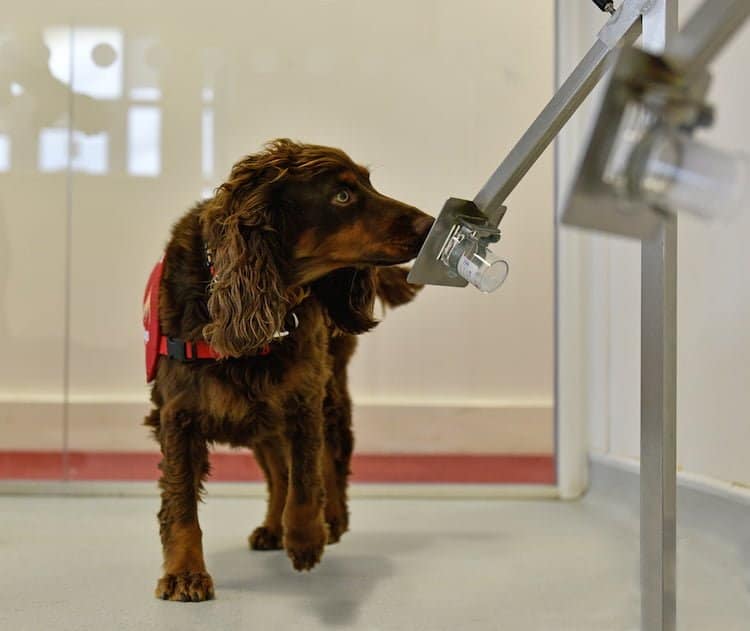
How did you feel?
I felt absolutely gutted that something couldn’t have been done earlier.
When you have the Parkinson’s diagnosis and you know it’s a lifetime now of having the disease all you can pray is that the medication will slow the next stage of the progression.
Cancer is the thing that everybody fears and I think that because cancer can be so rapid, people think it’s a death sentence but actually things are changing a lot and it may not be any more.
People survive if diagnosed early and that’s why we’re so passionate about our work.
Dad is a very fit and healthy person in other way, and I think about if I’d known ten, 15 years ago, what things might have been like.
I wanted to do something to help with the diagnosis of the disease to help in detecting it earlier.
How is your dad now?
He’s on medication and is doing very well.
He continues to come to events and is active and the charity wouldn’t be what it is without him and I hope this is good for him.
Dad was pivotal in helping me set up the charity. He was a volunteer from day one and helped me co-found it, believed in the work and supported me.
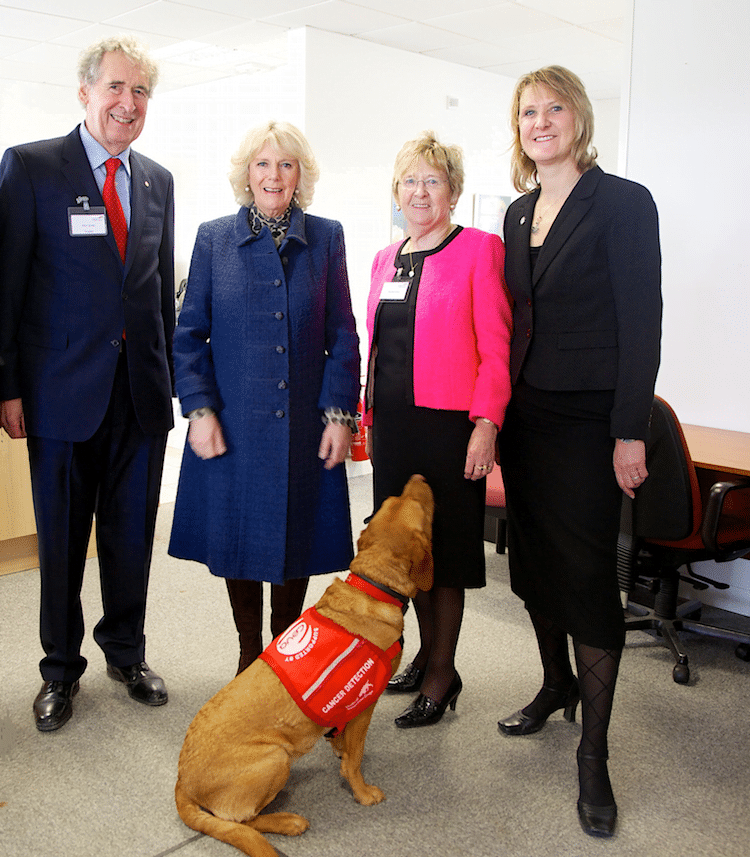
How does your dad feel about the work you’re doing with Parkinson’s?
He thinks it’s absolutely incredible. Even though we’re working on this and making progress with the dogs clearly indicating Parkinson’s disease, the time when it could have helped him has gone sadly.
If we’d been twenty years ahead we could have made a real difference, even ten years, but sadly that time has passed.
But Dad isn’t like that, he thinks very much to the future and the people it will help so he’s absolutely passionate about what we’re doing and the fact that his daughter and dogs will hopefully make a difference to millions of people.
What is your goal when it comes to the dogs and the work with Parkinson’s?
My aim would be to work with clinicians to recognise Parkinson’s at a much earlier stage, when patients have these unclear symptoms that don’t fit into a pattern.
They might feel tired, weak or wobbly, all the symptoms which are usually dismissed as an ‘off day’ until they become very bad.
I hope this will mean the pharmaceutical industry will look into drugs that can assist in the reduction in the damage that’s being done to the brain for people with early Parkinson’s signs.
Although you may never be able to cure Parkinson’s in our lifetime, you can reduce the damage so much that the person doesn’t have severe symptoms.
At the moment this disease is running wildfire in people’s bodies, destroying them.
If you think about this terrible thing going into someone’s brain and destroying the cells so that they’re unable to walk, balance, if you can stop the spread of that fire, they could have a really good quality of life for many years, and that’s where we need to get to.
I hope one day there will be a cure, but for now we want to stop this rapid progression of this horrible disease.
Clare Bale is Head of Research Communications at Parkinson’s UK.
She said: “Working with Medical Detection Dogs is a really interesting avenue to explore and it could be part of potentially identifying people at a very early stage of the condition.
“There’s a long period people spend in this terrible uncertainty where they are going through many different medical tests we know that is tremendously stressful and distressing.
“If we could take away that terrible process that would be a phenomenal thing. Although at the moment we don’t have any treatments that can slow, stop or reverse Parkinson’s we are working towards them.”
To find out more about Claire’s work, visit www.medicaldetectiondogs.org.uk
If you enjoyed this post, you might like to read How seeing a homeless dog inspired Jade to set up StreetVet or Why Carla Finzel decided to set up as a District Nurse for pets.


